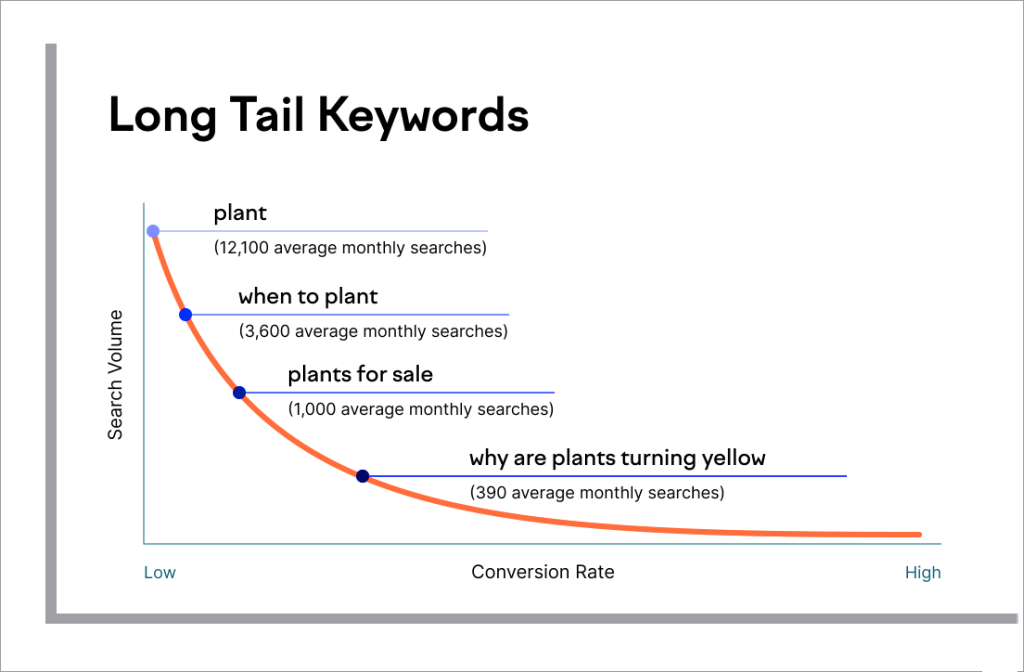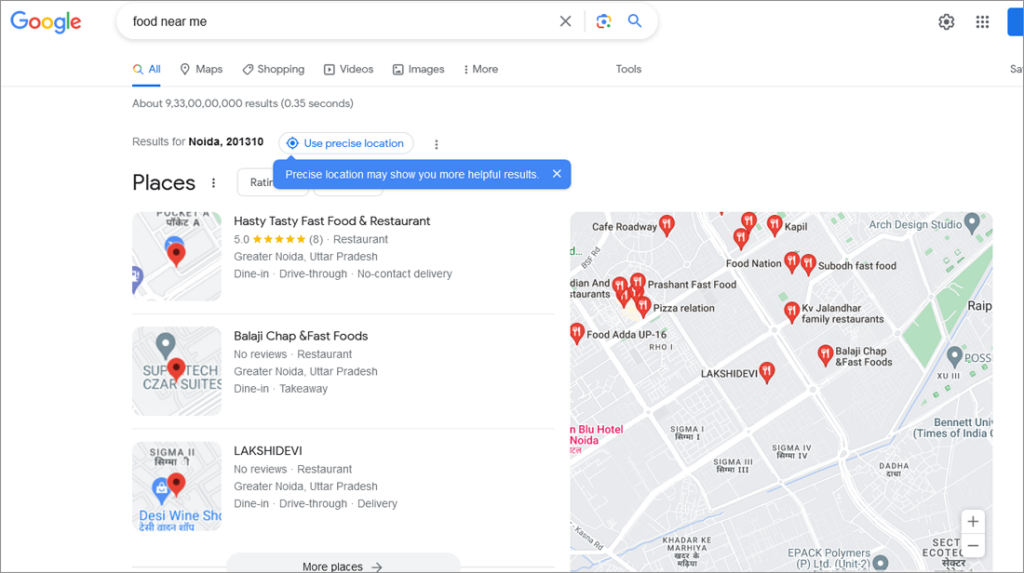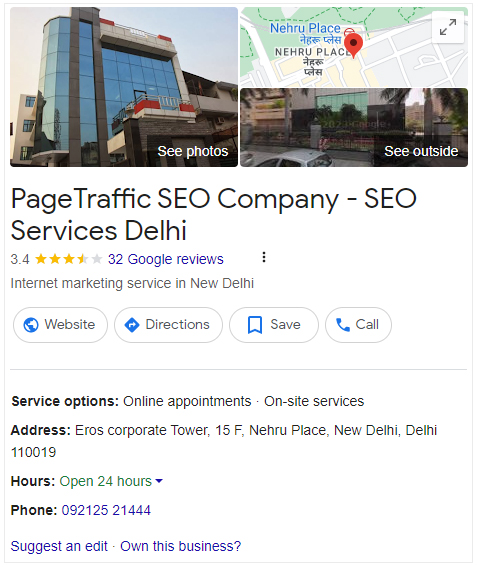Diving into the world of SEO, there’s one game-changing strategy you can’t afford to overlook: Voice Search Optimization. It’s transforming how we think about search engines and online content, making it crucial for anyone looking to stay competitive. Think about it: more and more people are asking questions out loud to their devices and expecting instant, accurate answers. If your content is optimized for these voice searches, you’re in a prime position to capture this audience.
Voice Search Optimization isn’t just a buzzword; it’s a shift in how we connect with technology and, by extension, each other. This approach goes beyond inserting keywords into web pages; it’s about understanding and responding to the natural way people speak. It’s about being there when someone asks their phone for help, advice, or information.
By focusing on Voice Search Optimization, you’re not just keeping up with trends; you’re getting ahead of them. You’re making your website more accessible, engaging, and useful. And in the SEO world, that’s what winning looks like. So, are you ready to give your site the voice search edge and turn curious searchers into your new, engaged audience? Start optimizing for voice today and lead the way in this exciting SEO frontier.
What Does Voice Search Mean?
Voice search allows users to interact with digital devices using spoken commands. This technology, powered by Natural Language Processing (NLP), is designed to understand and process human speech. While NLP is continually evolving, its accuracy improves with frequent use, making voice search more reliable over time.
What is Voice Search Optimization?
Optimizing for voice search means tailoring your website to rank higher in search results triggered by voice-activated assistants like Siri, Google Assistant, and Alexa. Unlike traditional text-based searches, voice queries tend to be conversational and utilize longer phrases or questions.
Businesses aiming to enhance their voice search visibility should adopt natural language, focus on long-tail keywords, and prioritize local SEO. Ensuring your website presents well-structured, highlighted, and valuable content is crucial for excelling in voice search results.
As voice-activated devices become more prevalent, optimizing your website for voice search is not just an option but a necessity. It allows businesses to stay competitive and adapt to the evolving search habits of consumers. Here are 12 effective strategies to make your website voice search-friendly, ensuring you remain at the forefront of digital innovation and user engagement.
SEO service providers play a crucial role in developing conversational and technically optimized content for voice search, helping businesses maintain competitiveness in the voice-activated digital age. They possess deep insights into user intent and deploy essential strategies for achieving success in voice search optimization.
Popular Voice Search Devices and Their Search Engines
- Google Home: Google Search
- Google Assistant: Google Search
- Android Devices: Google Search
- Amazon Echo/Alexa: Bing
- Microsoft Cortana: Bing
- iPhone/Siri: Safari
Why Do More People Use It?
Voice search is becoming increasingly popular due to its convenience and natural interaction. Saying “Hey, Google” and asking a question as if you’re speaking to another person feels more intuitive than typing queries into a search bar.
One of the key advantages of voice search is its hands-free operation. Picture yourself in the kitchen with flour-covered hands while baking a cake; voice search allows you to query your phone for the next recipe step without needing to clean your hands first. Other reasons for the growing use of voice search include:
- It’s more enjoyable than a normal search
- It’s faster than using an app or starting a computer
- People dislike typing on their cell phones
- You can use it without holding it, like when you’re driving
- People think it’s a better way to find information
Voice search isn’t limited to younger demographics; it’s used widely across all age groups. Although still in its early stages, businesses that adopt voice search SEO now will gain a competitive edge.
Statistics for Voice Search
- 20% of people who use Google online are using voice search on their phones
- 58% of people use their voice to search for information about a nearby business on the internet
- The voice recognition market will almost reach 50 billion USD in 2029
- 4.2 billion people are using voice assistants. This number will become 8.4 billion by the end of 2024
- 25% of the searches on Windows 10 desktop were done by talking instead of typing
- 60% of people who use voice search believe that voice assistants give more accurate information than regular online searches
Importance of Voice Search
While mobile SEO hasn’t revolutionized search behavior as some predicted, it’s undeniable that mobile and desktop search queries often overlap. However, mobile searches often include queries like “store timings?” or “near me,” fueled by the convenience of smartphones.
Despite the similarities between mobile and desktop SEO, voice search introduces a significant shift. Voice queries tend to be more conversational and action-oriented, impacting how businesses should optimize their online presence.
For example, a desktop user might type “Pizza Hut hours,” whereas a voice search on a mobile device might be phrased as, “Hey Google, when does the closest Pizza Hut close?” This shift in query phrasing necessitates a different approach to content optimization.
Google has noted that voice searches are 30 times more likely to be action queries compared to text searches. Understanding user intent allows businesses to create content that not only ranks well but also meets the users’ needs. The emphasis on action-oriented queries means that content should be crafted to prompt user engagement and fulfill their immediate requirements.
Also Read: What Is SEO and How Does SEO Work? Starter SEO Guide
Working of Automatic Speech Recognition System
Automatic Speech Recognition (ASR) technology is a transformative tool that converts spoken language into written text, facilitating voice searches across various smart devices such as phones, speakers, and vehicles. This innovation allows users to perform searches using voice commands, significantly enhancing the convenience and accessibility of information retrieval.
Here’s a breakdown of how voice search engines operate:
Step 1: ASR software listens and understands what people say when they talk. The device listens to words and saves them as a wave file. The wave file is changed to make the sound louder and remove background noise.
Step 2: The filtered wave pattern is broken up and examined.
Step 3: The voice recognition software listens to the sounds and uses statistics to understand the words and sentences.
Evolution of Voice Search
The proliferation of smart devices and advancements in artificial intelligence (AI) have propelled voice search into a new era of sophistication. Modern voice search capabilities extend beyond mere word recognition; they encompass a nuanced understanding of language nuances, user intent, and contextual relevance.
Enhancements in AI-driven voice search include:
- Improved accuracy in voice recognition and spelling.
- The ability to reference previous interactions to provide contextually relevant responses.
- Enhanced understanding of user queries, allowing for more precise answers.
- Precise location-based responses, enriching the user experience with personalized information.
- Seamless integration with various applications, broadening the scope of voice search utility.
Continuing the Conversation
Voice search AI is designed to maintain the flow of conversation. For example, after inquiring about the day’s weather, a follow-up question about the necessity of an umbrella for the next day is smoothly addressed, demonstrating the system’s ability to comprehend and connect related queries.
Furthermore, if an initial query yields imprecise results, providing additional details can refine the search outcome, showcasing the adaptive nature of voice search technology.
Understanding Specific Details Related to Location
Voice search AI is adept at providing personalized answers based on the user’s location. Querying the distance to a nearby museum, for example, yields a response tailored to the user’s current location, enhancing the relevance and utility of the information provided.
This sophisticated level of personalization and context awareness underscores the significant strides made in voice search technology, offering users a seamless and intuitive search experience.
Intelligence With Apps
Picture yourself using a travel app to plan your upcoming trip to Tokyo, discussing various sushi restaurants to experience authentic Japanese cuisine. Now, imagine inquiring within the app, “Can you show me the best ones?” The AI, understanding your previous conversation about dining in Tokyo, effortlessly presents the top sushi spots in the city, eliminating the need for you to specify your location. This capability demonstrates how AI can grasp the context of conversations within an app, tailoring its responses to your queries.
This advanced understanding significantly streamlines your search process. By recognizing the specific app you’re using and your intentions, AI facilitates a seamless connection between your discussion and the app’s resources, making it easier to access relevant information.
Voice Search vs. Text Search
Voice search allows you to interact with your device using spoken commands, akin to conversing with another person, as opposed to typing out your queries. This conversational nature often leads to the use of longer, more detailed phrases in voice searches than the concise keywords typically employed in text searches.
Voice search is particularly useful for multitasking scenarios, such as driving or performing household tasks, where hands-free operation is advantageous. To optimize for voice search, ensure your content is conversational, directly addresses user queries, and reflects natural speech patterns, considering the user’s context and preferences.
Voice queries tend to be full sentences and highly specific, as users expect direct and precise responses from their digital assistants. Enabling location services can further refine search results, such as locating a nearby Italian restaurant.
For businesses aiming to improve their visibility in voice searches, creating a comprehensive FAQ section or a blog filled with reliable information, targeting specific keywords, and addressing common questions, can be highly effective. Understanding the types of questions your audience asks digital assistants and crafting content that addresses those queries is key to succeeding in the voice search landscape.
Voice Search Optimization Strategies
Use Long-Tail and Question Keywords

Voice search tends to favor complete questions over brief keywords. For example, a voice search query might be, “Ok Google, how can I improve my website’s search engine ranking with an SEO agency?” In contrast, a text-based search might simply use shorter phrases like “SEO agency” or “SEO optimization.” The reason behind this is the convenience of voice search; it’s easier for users to speak out full questions rather than typing lengthy queries.
Voice search devices excel at interpreting user queries, contributing to a growing preference for voice commands over typing. Voice queries often include question words such as how, where, what, why, and when, making it crucial to integrate these into your content to enhance visibility in voice search results.
Longer, more specific keywords tend to perform better in voice searches, so it’s advisable not to overlook extended keyword variations. Backlinko suggests that the average voice search response is at a ninth-grade reading level, indicating that overly complex vocabulary might hinder your content’s chances of appearing in voice search results.
Adopting a conversational tone that mirrors natural speech patterns can significantly improve your content’s voice search compatibility. Incorporate commonly used words and phrases to make your content more relatable and accessible to voice search users.
Use Schema Markup for Context

Schema markup is a powerful tool for structuring data on your website, enabling search engines to interpret your content more effectively. By clarifying your site’s content through schema markup, you can enhance its SEO performance and increase the likelihood of generating rich snippets in search results.
Implementing schema markup as part of your voice search optimization strategy provides search engines with explicit context regarding your content and its relevance to specific queries. This strategic move can significantly improve your site’s visibility and accessibility to users employing voice search, ensuring your content reaches a wider audience.
Have an FAQ Section

Voice search often involves direct questions such as “Who, Why, What, How, When, etc.” Users are seeking immediate, straightforward responses. An FAQ section on your website is an excellent tool for addressing the myriad of queries related to your focus keywords.
To cater to voice search effectively, ensure that your FAQ responses mimic a natural conversational tone. Besides content optimization, it’s crucial that your website and specific web pages are technically sound, utilizing schema markup to enhance search engines’ comprehension of your content. Additionally, streamline your website’s navigation and prioritize quick loading times to improve the overall user experience.
Understand Your Customers and Create Relevant Content
Creating concise, engaging, and relevant content is vital in aligning with your voice search strategy. Different demographics, such as Millennials, Gen Z, and Gen Alpha, may utilize voice search differently. Developing a detailed customer persona can guide you in crafting content that meets the specific needs and preferences of your target audience.
Consider structuring your website to directly address common queries, followed by comprehensive explanations or definitions related to your keywords. Expanding on the topic further can address any additional concerns or questions users might have. Also, integrating digital marketing best practices into your content creation process can enhance its effectiveness and reach.
Also Read: Top 16 of the Best SEO Tools & SEO Reporting Software
Make Sure Your Website Loads Quickly
Fast loading times are not just crucial for traditional SEO rankings but are imperative for voice search optimization as well. User engagement can significantly decline with slow-loading sites, underscoring the need for immediate improvements. Voice search users expect prompt answers, and a sluggish website can lead to missed opportunities to be featured in voice search results.
If your website suffers from slow load times and outdated features, it’s unlikely to serve as a reliable source for voice search engines. Ensuring your website is up-to-date and optimized for speed is essential in fulfilling the objectives of your voice search optimization efforts.
Create a Mobile-Friendly Website
Ensuring your website is fully functional on mobile devices is crucial for visibility on search engines and voice searches, contributing significantly to your site’s growth. In 2019, Google emphasized the importance of mobile responsiveness in determining a website’s search ranking, reflecting the increasing reliance on mobile devices for internet access.
Prioritizing mobile optimization is essential, given the shift towards mobile-first indexing by Google. This approach involves ensuring seamless functionality across various devices, particularly smartphones and tablets. A mobile-friendly website not only enhances user experience but also facilitates easier indexing by Google’s bots.
Use Natural Language Processing (NLP)
Natural Language Processing (NLP) plays a pivotal role in refining voice search capabilities, enabling search engines to interpret and respond to human language more effectively. As a branch of AI, NLP allows machines to process and interact with human language in a manner akin to human communication.
In the realm of voice search, NLP is instrumental in discerning the nuances of spoken language, which tends to be more conversational and context-dependent than written queries. NLP algorithms assist search engines in comprehending user intents, thereby delivering more accurate search results.
Furthermore, NLP enhances the conversational abilities of virtual assistants, making interactions more intuitive and user-friendly. By aligning content with natural speech patterns through NLP, businesses can significantly improve user engagement and increase the likelihood of their content being featured in voice search results.
As voice search usage continues to rise, leveraging NLP becomes increasingly important for maintaining a competitive edge in digital marketing and SEO strategies.
Optimize Your Website for “Near Me” Searches

Local SEO optimization is crucial for businesses seeking to rank in searches for services or products within their vicinity. Given that nearly half of all Google searches are local queries, optimizing for “near me” searches is particularly important for businesses with physical locations.
Voice search optimization for local SEO is vital, as voice-activated devices like Siri and Alexa prioritize listing businesses based on proximity to the user’s current location. Ensuring your website is optimized for local searches can significantly enhance visibility and attract more customers from your local area.
Perform SEO for Voice Search in Multiple Languages
Google’s voice search capability spans across 120 languages, presenting a challenge for websites attracting a global audience. In such cases, tailoring your SEO strategy to accommodate multilingual users becomes essential.
Voice searches are predominantly conducted in the user’s native language, highlighting the importance of multilingual SEO. Without optimizing your website for various languages, you risk alienating non-English speakers.
Utilizing hreflang annotations is crucial for multilingual websites, as they guide search engines in presenting the appropriate language version of your site to users based on their preferences. For example, hreflang can direct Spanish-speaking users to the Spanish version and English-speaking users to the English version of your site. Employing the “alternate” attribute with hreflang indicates to Google that the page is a translation rather than duplicate content, helping to avoid issues with content redundancy.
Make Your Microdata Better
Improving your site’s microdata can significantly aid Google in comprehending your content. Ensure your Google My Business information is accurate and create a detailed map highlighting essential details such as product pricing, location, operating hours, and contact information.
Incorporating microdata helps Google grasp the various functionalities of your site. Label different sections of your website clearly to refine your microdata further. These optimizations increase the likelihood of your content being utilized to answer voice search queries.
Use Conversational Tone
Voice searches to mirror natural conversations, making it beneficial to craft your content with a conversational tone. This approach fosters a connection with your audience, making your content more relatable and accessible.
To achieve a conversational style, use simple, everyday language and personal pronouns like “I,” “you,” and “we.” Incorporating humor can also enhance the readability of your content and reinforce your main points.
If your brand has a unique voice, strive for a relaxed writing style without compromising content quality. Your aim should be to create content that is engaging, informative, and appealing to your audience, as high-quality content remains a priority for Google.
Claim Your Google My Business Profile

With half of all voice search users seeking information on local businesses daily, ensuring your business ranks prominently in search results is crucial. Voice search predominantly serves users looking for local services, making it essential for your business to be easily discoverable. Claiming your Google My Business profile is a pivotal step in achieving this.
This action is vital not only for businesses focusing on voice search but for all brick-and-mortar establishments. The process of claiming your profile is straightforward and free of charge. Simply set up your listing, fill in comprehensive business details, and await verification.
Google’s BERT Algorithm for Voice Search Optimization
The introduction of Google’s BERT algorithm is anticipated to significantly impact online search behaviors, particularly in voice search. BERT, which stands for Bidirectional Encoder Representations from Transformers, employs machine learning and Natural Language Processing (NLP) to better comprehend search queries.
Dubbed by Google as a “State-of-the-Art Pre-training for Natural Language Processing,” BERT aims to refine the search experience for users. This advancement necessitates a shift in SEO strategies for businesses to align with the new search dynamics.
BERT excels at parsing complex or conversational queries by analyzing the contextual relationships between words within a sentence. This capability allows BERT to provide more accurate search results, facilitating easier access to information for users. As the use of voice assistants like Google Assistant continues to rise, Google’s ability to interpret the intent behind spoken queries becomes increasingly important.
The significance of BERT lies in its understanding of search queries’ nuances and the contextual associations of words, making voice search results more precise and relevant to the user’s needs.
Is It Necessary for Local Businesses to Do Voice Search Optimization?
Absolutely, voice search optimization is crucial for local businesses looking to enhance their visibility in search results. With an increasing number of consumers turning to voice search to find local services and products, businesses that optimize for voice search can significantly boost their brand recognition, customer satisfaction, and prominence in local search rankings.
Optimizing content for voice search can also foster greater trust in your business among potential customers. Businesses that appear in voice search results are often perceived as more trustworthy. Furthermore, voice search optimization can streamline the customer acquisition process, as voice search tends to deliver faster and more straightforward results compared to traditional text-based searches.
As the adoption of voice search continues to grow, local businesses must ensure their content is easily discoverable through voice queries to stay competitive. Keeping your website up-to-date with the latest voice search technologies is therefore not just beneficial but essential.
Why Is Voice Search Optimization Important for People With Disabilities?
Voice search technology offers significant benefits for individuals with disabilities, enhancing their ability to communicate and improving their overall quality of life. For those facing communication challenges due to physical or neurological conditions, traditional methods of interaction may be difficult or impossible. Voice search technology, powered by AI and Natural Language Processing (NLP), translates spoken words into text, facilitating clearer and more effective communication.
This technological advancement can transform the lives of people with disabilities in numerous ways. For example, it enables the control of computers and other devices hands-free, which is particularly beneficial for individuals with physical impairments. This autonomy can enhance personal safety and self-care.
Furthermore, voice search can aid individuals with learning difficulties by providing easy access to educational resources tailored to their needs. While efforts to improve and expand accessibility are ongoing, the impact of voice search on individuals with disabilities is profound, offering increased independence and improved communication abilities.
As voice search technology continues to evolve, its significance for people with disabilities will only grow, highlighting the importance of incorporating voice search optimization into digital strategies to cater to all users’ needs.
Check if Your Website Is Compliant With the Rules for People With Disabilities
To ascertain your website’s compliance with disability guidelines, employing automated accessibility checkers is a practical approach. These tools scrutinize various elements and generate reports identifying areas that require attention. Additionally, professional services exist that conduct manual evaluations to ensure adherence to the Web Content Accessibility Guidelines (WCAG).
Adhering to WCAG standards is crucial for making your website accessible to individuals with disabilities. With the increasing reliance on voice search, it’s imperative to ensure your website is optimized for this technology. Automated tools can pinpoint potential voice search issues and provide detailed reports for remediation.
Organizations like Accessible360 offer manual assessment services, leveraging accessibility experts to conduct thorough reviews of your website and identify compliance gaps that automated tools might overlook.
Ultimately, conducting comprehensive tests on your website is essential for universal usability. Both automated assessments and expert evaluations can uncover critical insights into necessary improvements. By aligning your website with WCAG guidelines, you ensure inclusivity for all users.
Voice Search Applications
Wearable Tech
Smartwatches are becoming indispensable tools for quick, on-the-go assistance. Imagine a busy executive navigating back-to-back meetings who suddenly requires an immediate translation during a call with an international colleague. A simple voice command to their smartwatch can provide the needed translation without interrupting their workflow.
Tablets
For those seeking speedy answers or solutions, tablets equipped with voice search capabilities are incredibly useful. Picture lounging on your couch, wondering about the countries bordering the Mediterranean Sea. A quick voice query to your tablet’s assistant can satisfy your curiosity without disrupting your relaxation.
Connected Cars
Voice search in connected cars enhances the road trip experience by providing hands-free assistance. Drivers can easily inquire about nearby rest stops, attractions, or well-reviewed dining options, enriching their journey with timely and relevant information. This integration of voice search into vehicle entertainment systems underscores its utility in facilitating safer and more enjoyable travel.
Smart TVs
Smart TVs elevate the traditional television experience by connecting to the internet, enabling interactive features, apps, and streaming services. They respond to voice commands, allowing users to easily navigate content, adjust settings, and discover new shows, thereby enriching the entertainment experience.
Digital Assistants
Digital assistants, such as Amazon Echo and Google Home, serve as voice-activated hubs that facilitate information retrieval, smart home device management, and various tasks without the need for physical interaction. These devices streamline technology use in both homes and offices, making daily routines more efficient.
How Is Voice Search Impacted by Generative AI?
Generative AI technologies like Bard or ChatGPT could potentially reduce website traffic by providing direct answers to online queries, similar to Google’s Knowledge Graph. As virtual assistants become more prevalent, there’s industry debate on how these AI advancements might influence SEO and website clicks.
Google CEO Sundar Pichai has indicated that AI search features will simplify the understanding of complex information. Even after AI provides an answer, related articles are often listed, which could drive additional site traffic.
Final Thoughts
Voice search is becoming an integral part of the digital landscape, necessitating website optimization for voice queries. As voice search usage continues to rise, staying ahead of this trend is crucial for maintaining visibility and competitiveness.
Voice search optimization remains underutilized in SEO strategies. Enhancing your site for voice search, combined with traditional SEO tactics, can provide a competitive edge. Reflect on everyday voice search usage and customer needs to tailor your content and offerings accordingly. Ensuring your online business profile is optimized is also vital for local SEO success.
FAQs
Does voice search only work on mobile phones?
While commonly associated with smartphones, voice search is also available on various devices like smart speakers and computers. Businesses should ensure their websites are voice search-friendly across all platforms to maximize reach.
How is voice search different from typing words to search?
Voice search is more conversational and utilizes natural language, differing from the concise keywords typical in text searches. This requires businesses to adapt their content to match conversational queries to improve search result visibility.
How does Natural Language Processing (NLP) help make voice search better?
NLP is crucial for enhancing voice search by enabling search engines to interpret and respond to spoken queries. It improves content relevance by understanding nuances, synonyms, and conversational language.
How can companies change their content plan for voice search?
To optimize for voice search, businesses can create FAQ sections, how-to guides, and local information, and provide concise answers to common queries. Keeping content updated and analyzing performance is key to voice search success.


























 RSS Feeds
RSS Feeds